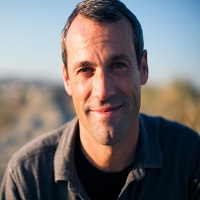AT FIRST, THE COMMENTS FROM THE PUBLIC at the March meeting of the San Francisco school board were staid. Several students pleaded to make International Women’s Day a SFUSD holiday, several teachers complained about a payroll glitch that left hundreds of them short on their monthly bills, and both teachers and students made a passionate demand to continue funding for the Peer Resources program at Lincoln High.
Then, things took a turn. “I want to thank board members Collins, López, and Moliga for their service, and I’m sad that we’re losing these equity advocates,” the final speaker said. Then, he added: “Their opponents and those who stand against Black and Brown students should go fuck themselves!”
Alison Collins, Gabriela López, and Faauuga Moliga, the three San Francisco school board members recently ousted in a closely watched recall election, were not present for that expression of support. They had been removed from office by voters, and they were soon replaced by appointees of San Francisco Mayor London Breed.
They were casualties of the first successful recall in San Francisco in more than 100 years. Backed by Mayor Breed and big money from Silicon Valley, the recall represented a battle in the nation’s convoluted culture wars, but because it happened in San Francisco, it attracted national attention, much of it predictable — and wrong.
Pundits on Fox News trumpeted it as a backlash against “woke politics” and a bellwether for “progressivism gone wild.” Observers noted the galvanized response of the Asian American community in a city where its voting strength had long been underestimated, “a sleeping tiger, poked.”
But what unfolded in San Francisco was not a referendum on “wokeness” or a test of political demographics. It was an exercise in local politics, complicated and messy and decidedly rooted in the particulars of this city fighting its way through COVID-19.
The morning of the election, after I finished my volunteer shift helping kids out of their parents’ cars at the SFUSD elementary school where my daughter is a third grader, I walked a block to my polling place in a neighbor’s garage. I happened to know one of the poll workers — another neighborhood public school parent. Before the pandemic, Sujung Kim’s daughter used to babysit my daughter. We chatted about our kids, and then I cast my ballot — along with a mere quarter of registered San Francisco voters that day — and got my sticker.
I voted no on the recall mainly because I don’t like recalls, and the school board was up for reelection in November anyway. Still, some of the grievances that mobilized supporters of the recall resonated with me.
The year and a half of remote learning through the pandemic was bumpy at best — there seemed to have been little planning for a transition to virtual classrooms and a belabored process for getting kids back in real classrooms. I agree with those who want my kid’s school renamed not to honor an enslaver, never mind that his poem became the national anthem. But pushing ahead with the renaming of 44 schools in a city full of empty classrooms during the pandemic seemed to many like a distraction.
In the weeks leading up to the recall and the months following, the conversations I’ve had with other public school parents have run the gamut, from “throw the bums out” rage to furrowed-brow confusion. One friend who works for the city of San Francisco talked of her experience working with elected officials committed to equity, whose progress is deliberate and incremental and reflective of the spectrum of community stakeholders — slow and steady. This school board was not that. Another friend saw the recall as a disappointing reflection of the powerful pull of binary thinking, evidence that a substantial number of voters in San Francisco are uncomfortable with the dynamic complexity of the post-George Floyd era of social change.
Sujung, like me, voted no on the recall. She too was skeptical of recalls and their potential to subvert the political process. But we also shared concerns. “Online learning was a disaster,” she told me. “They dragged their feet on getting schools prepared to bring kids back, and they freaking failed us.” Her son is finishing his junior year, and her daughter, now in college, endured the tail end of her Lowell High School junior year and then senior year on Zoom.
Lowell is the San Francisco high school that for decades had a “merit-based” testing admissions process that the school board shifted to a lottery — like every other school in the city except for the Ruth Asawa School of the Arts. Her daughter is a product of that “merit-based” Lowell system, but Sujung believes the lottery is a big step toward equity. “Sure, it’s nice to have this shiny school, but it’s not fair,” she said. “For students of color from low-income backgrounds, they’ve written them off, and it doesn’t have to be that way.”
Sujung moved to San Francisco 31 years ago and says she sees big changes in the city over those decades — more stratified, more conservative and less diverse. The pandemic left a lot of parents depleted and frustrated, she told me, and they took that out on the school board.
The week that Mayor Breed named three new school board members I took a walking tour of the Jackson Square Historic District and Chinatown’s Portsmouth Square, led by Gary Kamiya, a local historian and San Francisco Chronicle columnist. In the shadow of the Transamerica Pyramid, I heard tales of racial strife and power shifts dating back 200 years. I watched a swaggering young white dude in a Bitcoin hoodie exit a sleek, frosted-glass office next to what was a Gold Rush-era cigar factory run on Chinese labor.
“It’s complicated,” said Kamiya when I asked for his thoughts on the recall. Yes, he said, San Francisco may be considering the outer edges of wokeness, but the underlying questions of race and schools are reliable sources of conflict in San Francisco. “We’ve been down this road before. If you look at the history of public schools in this city, there’s been this collision between Asian Americans, Black Americans, and activists that goes back 40 to 50 years. I’d be wary to read too much into things.”























